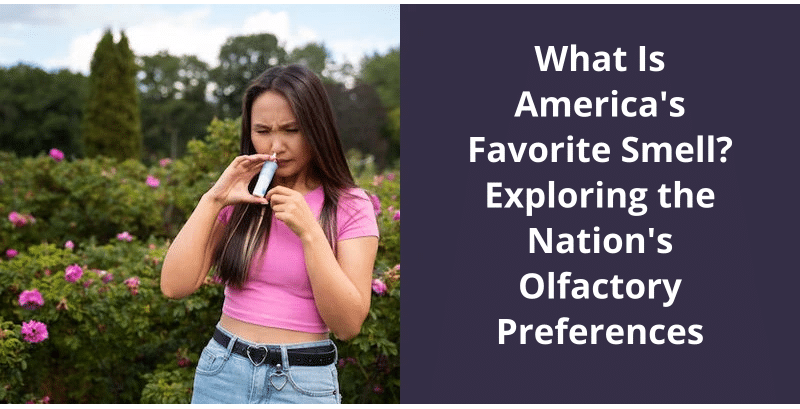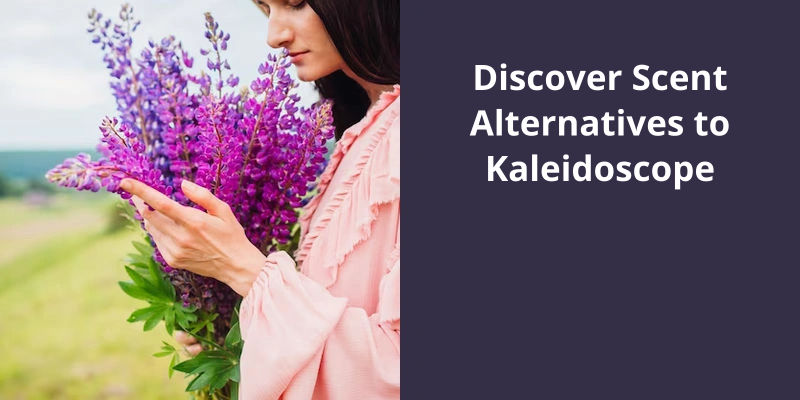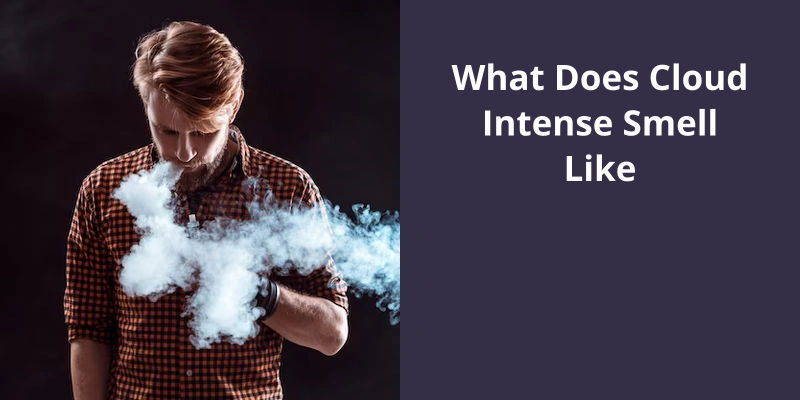The sense of smell is a powerful tool that can evoke powerful memories, emotions, and experiences. From the aroma of fresh coffee in the morning to the scent of fresh-cut grass on a summer day, smells can transport us to a different time and place. When it comes to America's favorite smell, there are many different scents that come to mind, depending on who you ask. However, according to science, the world's favorite scent is vanilla. This warm and sweet fragrance has a universal appeal and is found in everything from candles to desserts, making it a beloved favorite around the world.

What Is the Number 1 Best Smell?
It’s a difficult task to determine the number 1 best smell in the world. After all, different people have different olfactory preferences and experiences that shape their scent preferences. However, if we were to take a survey, we may find that fresh air would be the top choice for many.
Fresh air is a complex smell that encompasses a broad range of notes, and this is perhaps what makes it so appealing. It’s a combination of rain, earth, flowers, trees, grass, and more. When we take a deep breath of fresh air, we’re filling our lungs with the scents of nature, and theres something intrinsically soothing and calming about that experience. Whether it’s the crisp air of the mountains or the salty breeze of the ocean, fresh air is an invigorating and refreshing scent that awakens the senses.
Vanilla is another scent that ranks high in the list of best smells in the world. It’s a warm and comforting scent that awakens memories of home baking and sweet treats. Vanilla has a rich and creamy aroma that can lift the spirits and improve mood. It’s a scent that can be used in perfumes, candles, or room sprays to create an inviting and cozy atmosphere.
Coffee is a scent that sparks our senses and invigorates us in the morning. It’s a bold and robust scent that’s a powerful effect on our minds and bodies. When we smell coffee, our brains release dopamine, the happiness hormone that makes us feel good. It’s a scent that’s been associated with energy, productivity, and focus. Coffee is a popular scent for candles, and it’s often used in aromatherapy to boost the mood and promote mental clarity.
Barbecue is a scent that brings people together and creates memories of summer cookouts and family gatherings. It’s a sweet and smoky scent that can make us nostalgic for childhood and simpler times. When we smell barbecue, we know that good food is on the way, and our mouths start to water. The scent of grilling meat and vegetables is a tantalizing smell that can instantly make us happy and content.
Campfires are another scent that takes us back to our childhood and memories of roasting marshmallows and telling ghost stories. It’s a scent that can evoke a sense of adventure and freedom, and it reminds us of the joys of being outdoors. The scent of a campfire can be calming and grounding, and it’s often used in aromatherapy to create a relaxing and peaceful atmosphere.
Rain is a scent that’s a poetic quality to it. It’s the scent of renewal and freshness that comes after a summer storm. The scent of rain is a combination of ozone, petrichor, and soil. Petrichor is the earthy scent that arises when rain falls on dry soil, and it can be both soothing and invigorating. Rain is a scent that can cleanse the mind and soul, and it’s often used in aromatherapy for relaxation and stress relief. The scent of rain can be found in candles, room sprays, and even perfumes, as it’s a fragrance that’s universal appeal.
The world is full of scents that evoke different emotions and memories. From the fresh air of the mountains to the smoky aroma of a campfire, each scent has it’s unique qualities and allure. While it may be impossible to choose the number 1 best smell in the world, it’s safe to say that the smells mentioned above are truly exceptional and provide a sensory experience of the highest order.
How Scent Plays a Role in Our Emotional and Psychological Well-Being
Scent can impact our emotions and psychological state. It’s been known to evoke pleasant memories, reduce stress and anxiety, and increase relaxation. It can also affect our mood, energy levels, and overall sense of well-being.
The research on scent preferences yielded some surprising results, with vanilla emerging as the most universally-liked scent among participants from vastly different cultural backgrounds. This finding has potentially interesting implications for everything from marketing to personal relationships. However, there’s more to be unpacked from the study’s results.
What Is Statistically the Most Attractive Smell?
The researchers found that vanilla was the one scent that consistently outperformed the others, and was unanimously agreed upon as the most attractive smell. This is likely due to it’s sweet, comforting aroma that’s often associated with feelings of warmth and happiness. It’s also a scent that’s commonly used in baking and cooking, so it’s possible that people have positive associations with the smell based on their experiences with food.
Interestingly, the researchers also found that scent preferences were largely influenced by cultural factors. For example, the Seri hunter-gatherers in Mexico had a strong preference for copal resin, which is used in traditional ceremonies and has a sacred significance. Urban New Yorkers, on the other hand, tended to prefer the smell of coffee, which is associated with their fast-paced, caffeine-fueled lifestyle.
Women tended to prefer sweeter, more floral scents, while men often preferred more musky or woody scents. Age also played a role, with younger people preferring lighter, fresher scents, while older people tended to prefer more complex, intense scents.
Despite these variations in scent preference, vanilla remained the clear winner across all the different groups studied. This speaks to the universal appeal of this scent, and suggests that it may be a good choice for use in a wide variety of products, from perfumes and candles to air fresheners and cleaning products.
Overall, the study provides intriguing insights into the complex factors that influence our sense of smell and our preferences for different scents.
The Potential Therapeutic Benefits of Aromatherapy and the Use of Different Scents to Promote Relaxation, Reduce Stress, and Enhance Mood
- Lavender
- Chamomile
- Ylang Ylang
- Bergamot
- Lemon
- Peppermint
- Rose
- Jasmine
Source: What’s The World’s Most Attractive Scent? (For Men & Women)
Our sense of smell plays an integral role in our daily lives, connecting us to the world around us through a powerful sensory experience. While tastes and preferences vary from person to person, a recent study conducted by scientists shed light onto the universal scent that people found most pleasing and the least pleasant. The results were surprising and revealing, with a clear winner and a distasteful loser. Let’s dive into the details.
What Is the Nicest Smell in the World?
When it comes to discussing the nicest smell in the world, it’s difficult to come to a consensus as everyone has different preferences. However, according to a study conducted by the University of Pennsylvania, vanilla has been voted as the best smell. Interestingly enough, this scent has been associated with a nostalgic, comforting, and calming effect on people, which could be why it’s such a popular choice.
On the other hand, the worst smell in the world is considered to be sweaty feet. This is understandable, as the unpleasant odour can be overwhelming and in some cases, unbearable. Furthermore, it’s important to note that the perception of odours can be influenced by various factors, including cultural background, individual experiences, and personal preferences.
When you think about it, the power of scent is truly remarkable. It’s the ability to evoke strong emotions, bring back memories, and affect our behaviour. It’s the sense that’s most closely tied to our emotions and memories, and this is why people often associate specific smells with places, events, and people. The nicest smells in the world can transport you to a happy memory or place, and this is perhaps the most appealing aspect of fragrance.
So, next time you smell vanilla, take a moment to appreciate how it’s aroma can make you feel and how it connects you to the world around you.
Our sense of smell is closely linked to our emotions and memories, making certain scents incredibly addictive and powerful. From the intoxicating aroma of fresh coffee to the distinct scent of gasoline, these smells have the ability to transport us to another time and place, stirring deep emotions within us. But among all these addictive smells, which one is the most captivating? Let’s find out.
What Is the Most Addictive Smell?
The most addictive smell is a highly subjective concept that depends on individual preferences and experiences. However, some smells have been proven to be more addictive to humans than others. For instance, the scent of gasoline has been linked to the release of dopamine in the brain, which is associated with pleasure, motivation, and reward. This may explain why some people find the smell of gasoline irresistible and even addictive.
Another smell that’s highly addictive is the aroma of freshly brewed coffee. The scent of coffee has been found to have a calming effect on the brain and can boost energy levels and mood. It’s no surprise that coffee is one of the most consumed beverages in the world, with millions of people starting their day with a cup of coffee.
Glue is also known to be an addictive smell, especially for children. The scent of glue is often associated with childhood memories of arts and crafts projects and can evoke feelings of nostalgia. However, inhaling glue can be dangerous and may result in long-term health problems.
Wet earth is another smell that many people find addictive. The smell of wet earth is often associated with the beginning of spring and the end of winter. It’s a refreshing and rejuvenating scent that can evoke feelings of renewal and new beginnings.
While these smells can provide a sense of pleasure and nostalgia, it’s important to remember that inhaling certain scents can be harmful to our health.
Aromatherapy: How Smells Can Affect Our Mood and Emotions
- Aromatherapy is the practice of using essential oils and aromatic compounds to enhance psychological and physical well-being.
- Smells can affect our mood and emotions through the limbic system, which is the part of the brain responsible for emotions, memory, and behavior.
- Certain scents can have a calming effect, such as lavender and chamomile, while others can be invigorating, such as peppermint and citrus.
- Aromatherapy can be used in a variety of ways, such as through diffusers, bath salts, and massage oils.
- Research has shown that aromatherapy can help reduce stress and anxiety, improve sleep, and alleviate symptoms of depression.
Our sense of smell is fascinatingly powerful, capable of eliciting deep emotions and vivid memories. The impact of scent on our mind and body is well-documented; Studies indicate that fragrances have the ability to influence our mood, enhance our concentration, trigger memories and evoke emotions. With such profound effects, it’s no surprise that many turn to scent as a tool to enhance their well-being. In this article, we will explore the ways in which scent can elevate our mood and improve our overall sense of happiness.
What Can Smell Make You Feel?
Smells can evoke powerful emotional responses and transport us back in time to specific memories and experiences. For example, the smell of freshly baked cookies might remind us of our childhood, while the scent of a particular perfume might bring back memories of a past relationship. This is because when we smell something, it triggers the olfactory bulb in our brain, which is directly connected to the amygdala and hippocampus – the centers of emotion and memory.
In addition to it’s ability to evoke feelings of nostalgia, certain smells can also have a profound impact on our concentration and productivity levels. For example, the scent of peppermint has been shown to increase alertness and focus in both children and adults, making it a popular choice for use in classrooms and workplaces. Other scents, such as lavender and chamomile, are known for their calming properties and can be helpful for reducing anxiety and promoting relaxation.
Interestingly, our sense of smell and taste are closely linked, which is why we often associate certain foods with specific scents. For example, the smell of a freshly baked apple pie might make our mouths water, while the aroma of coffee brewing can leave us feeling energized and ready to start our day.
Finally, the power of scent isn’t limited to humans – it can also have an impact on animals. For example, the scent of pheromones can be used to signal sexual readiness in many species, while certain scents can also be used to deter predators or attract prey. This ability to communicate through scent plays an important role in many animal behaviors and survival strategies. Overall, the power of smell is a fascinating subject that continues to intrigue scientists and researchers around the world.
Conclusion
The beloved aroma found ubiquitously in food, perfumes, and candles is a clear winner in the olfactory department. In America, it’s no different, with vanilla consistently being a top choice amongst many. Whether it’s used in baking, aromatherapy, or just as a simple air freshener, vanilla's alluring and comforting scent is hard to resist. It’s popularity can be attributed to multiple factors, including it’s versatility, familiarity, and association with positive emotions. From childhood memories of baking with mom to cozy nights by the fire, vanilla has cemented itself as America's go-to favorite scent.





